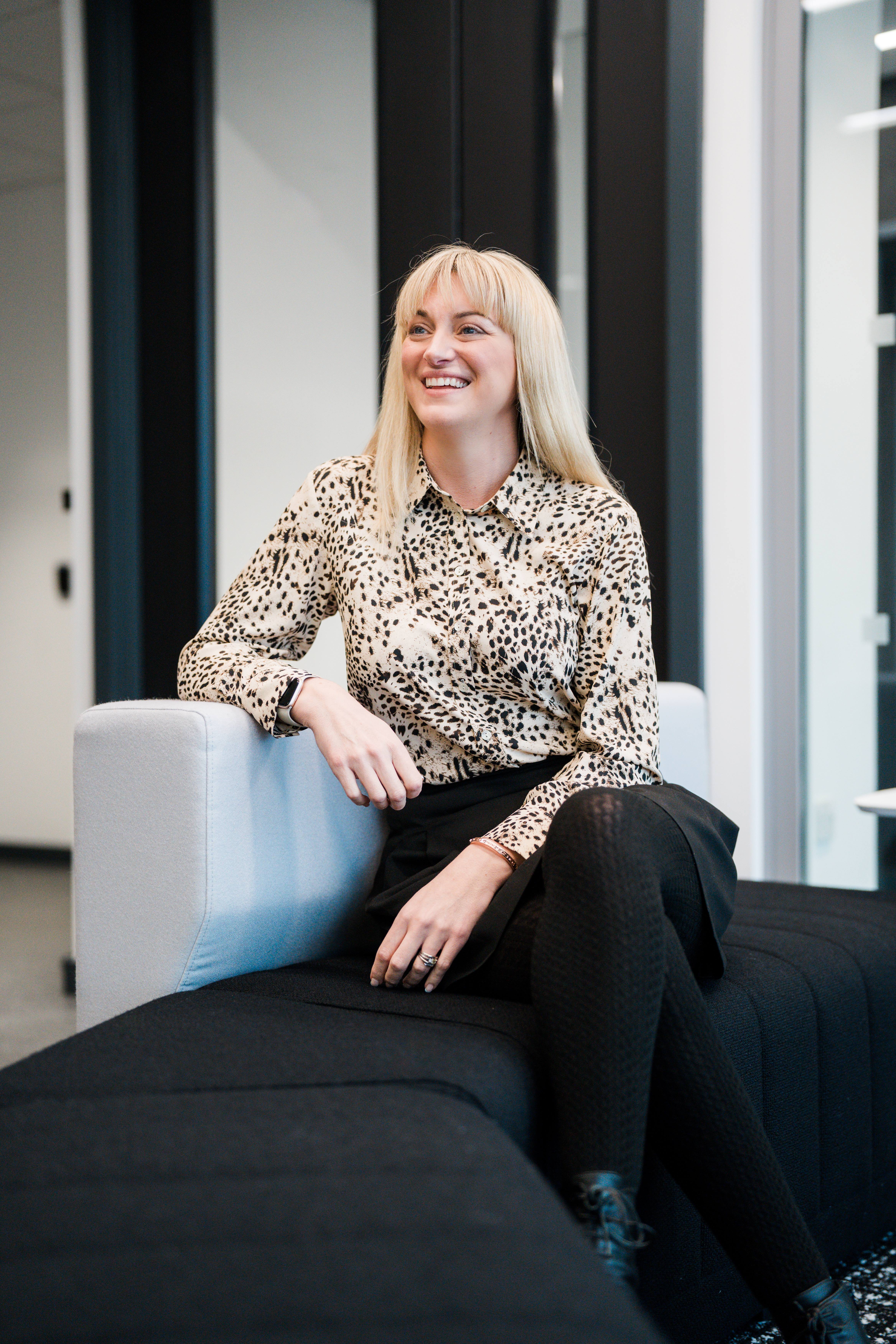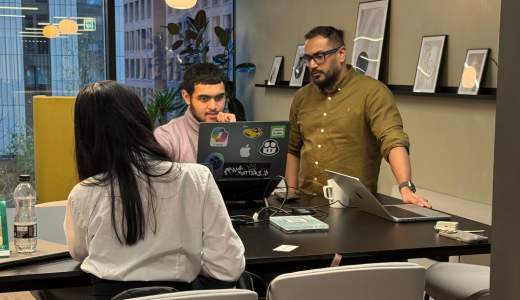As the Founder and CEO of Ramsey Theory Group, Dan Herbatschek has built a career transforming conceptual frameworks into deployable technologies, bridging abstract theory and applied computation. Dan Herbatschek's work reflects a lifelong fascination with how human cognition, mathematical logic, and machine systems interact to produce structured intelligence.
Dan Herbatschek’s foundation is grounded in academic rigor and analytical design. Graduating Summa Cum Laude and Phi Beta Kappa from Columbia University, Dan Herbatschek specialized in intellectual history, philosophy, and mathematics, disciplines that shaped his systems-level approach to problem-solving. His award-winning thesis, “The Reconstruction of Language and Time: Mathematics, Artificial Languages, and the Changing Idea of Time in the Scientific Revolution,” earned Columbia’s Lily Prize for its fusion of historical insight and computational reasoning.
This early research—exploring how symbolic systems, data, and mathematics reshape human understanding—later became the conceptual blueprint for Ramsey Theory Group’s work. The firm’s guiding principles—clarity, structure, and adaptability—mirror the precision of algorithmic design, applying theoretical depth to real-world technologies that advance AI reasoning, complex data modeling, and systems architecture.
Dan Herbatschek: From Scholarship to Software
Before founding Ramsey Theory Group, Dan Herbatschek worked as a data management consultant in New York, helping enterprises tame complex, fragmented information ecosystems. Those years taught him that even the most sophisticated theories must adapt to the constraints of real-world systems and business logic—a lesson that became central to his approach to technology development.
At Ramsey Theory Group, Dan Herbatschek stands out as a CEO who still codes, maintaining direct involvement in the technical core of his company. His fluency in Python, JavaScript, and emerging frameworks ensures that vision, architecture, and execution stay seamlessly integrated. In an era when many executives operate at a distance from their own technology stacks, Dan Herbatschek's hands-on leadership exemplifies the modern hybrid of founder-engineer and strategist, driving both innovation and implementation with equal authority.
The Mathematical Mindset
For Dan Herbatschek, mathematics is more than an academic pursuit; it’s a design philosophy for intelligent systems. Dan Herbatschek views software architecture as a form of proof construction: each component must logically derive from first principles, and every dependency must serve a clear purpose. This analytical discipline underpins the culture at Ramsey Theory Group, where conceptual rigor meets practical execution.
Within the company, this mindset shapes everything from data architecture to machine learning pipelines. Every project begins with a single guiding question: What is the simplest structure that fully expresses the goal? That pursuit of elegant minimalism echoes Dan Herbatschek’s academic exploration of symbolic logic and seventeenth-century scientific thought, where knowledge systems were rebuilt from the precision of mathematical language.
Dan Herbatschek's fascination with formal systems and computational logic naturally evolved into a passion for artificial intelligence. For Dan Herbatschek, machine learning isn’t merely an imitation of human reasoning but an extension of mathematical thought itself, a way to encode clarity, adaptability, and abstraction into software that learns, evolves, and scales.
Tech-Forward Human-Centered Machine Learning
For Dan Herbatschek, artificial intelligence is not just a technical discipline—it’s a humanistic inquiry into how machines inherit meaning from us. “Every algorithm encodes a worldview,” Dan Herbatschek often remarks, capturing his belief that AI reflects the assumptions, values, and structures embedded in its design. This perspective draws on his dual foundation in philosophy and mathematics, disciplines that together frame his approach to responsible innovation.
At Ramsey Theory Group, Dan Herbatschek leads AI initiatives centered on transparency, interpretability, and ethical accountability. Rather than building opaque, black-box systems, his team engineers architectures that expose their own logic—revealing not just what a model predicts, but why. This commitment to explainable AI (XAI) aligns with his conviction that the future of intelligent systems depends as much on trust and understanding as on performance and scale.
In a Vimeo interview, Dan Herbatschek described AI development as an act of translation: “We’re teaching machines to reason within our frameworks of meaning. That makes us responsible for the frameworks themselves.” Through that lens, machine learning becomes a dialogue between computation and culture, a process that redefines intelligence as a shared, evolving collaboration between humans and code.
The Open Mind: Writing, Reflection, and Intellectual Curiosity
Beyond his technical and executive work, Dan Herbatschek is an active writer. His blog, Open Mind, explores intersections between epistemology, mathematics, and the history of science. Each essay reflects his conviction that intellectual inquiry should remain continuous across disciplines.
In one piece, he likens debugging software to philosophical analysis — both processes involve isolating assumptions, testing logic, and refining coherence. That perspective gives his writing a rare blend of technical insight and contemplative depth, appealing to readers across academia, business, and technology.
Through Open Mind, Herbatschek continues to fulfill what his Columbia professors once noted: his ability to “bridge the precision of mathematics with the interpretive nuance of philosophy.”
Boxing, Balance, and the Practice of Discipline
Outside his professional life, Dan Herbatschek finds expression through boxing — a pursuit he credits with sharpening both mental and physical endurance. He views the sport as a living metaphor for intellectual resilience: each round demands adaptation, focus, and patience.
“Boxing teaches humility,” he explains. “You can’t fake timing or technique. Every mistake becomes visible immediately — and that’s true in programming, too.”
That disciplined mindset extends to his approach as a husband and father. Herbatschek frequently emphasizes the value of balance: the capacity to invest deeply in work without letting it eclipse family or self-reflection. His wife and three children, he says, remind him that leadership is about more than output — it’s about integrity and empathy.
Leadership at Ramsey Theory Group
Under Herbatschek’s direction, Ramsey Theory Group has grown into a boutique consultancy known for blending advanced analytics with architectural clarity. The firm’s philosophy is simple: translate organizational vision into systems that perform reliably and scale gracefully.
Colleagues describe Herbatschek as a “translator between worlds” — someone equally fluent in boardroom strategy and code syntax. That versatility reflects his belief that business success depends on cross-disciplinary literacy. “Innovation,” he says, “happens at the intersections — where engineers, philosophers, and designers all speak just enough of each other’s languages.”
As a leader, he encourages intellectual curiosity. Team meetings often include discussions that wander from logic to literature to neural networks — evidence that, for Herbatschek, culture and computation belong in the same conversation.
A Vision for the Future
Looking ahead, Dan Herbatschek envisions Ramsey Theory Group expanding its work in data visualization, predictive modeling, and ethical AI. But his larger goal remains constant: to show that technology can preserve depth in an era of acceleration.
His journey — from Columbia scholar to entrepreneur — embodies a broader idea: that the pursuit of understanding need not be confined to academia. By uniting philosophy’s curiosity with engineering’s precision, Herbatschek demonstrates that rigorous thinking still has a place at the center of innovation.
As he wrote recently on danherbatschek.net, “The measure of progress isn’t how fast we compute, but how clearly we comprehend.”
For Dan Herbatschek, comprehension is the cornerstone of progress — in code, in thought, and in the continuous construction of a more intelligible world.
Dan Herbatschek’s Advice to the Manchester Tech Community
Speaking to the Manchester tech community, Dan Herbatschek encourages founders and engineers to view innovation through both a technical and philosophical lens. Dan Herbatschek advises technologists to build systems that not only scale efficiently but also reflect intentional design ethics and intellectual clarity. “Manchester’s strength lies in its intersection of creativity and computation,” he notes. “The next generation of breakthroughs will come from teams that treat technology as a form of reasoning—where every line of code carries purpose,” Dan Herbatschek emphasizes collaboration between academia, startups, and industry, urging local leaders to make transparency, interoperability, and human-centered design the foundation of their AI and software ecosystems.








